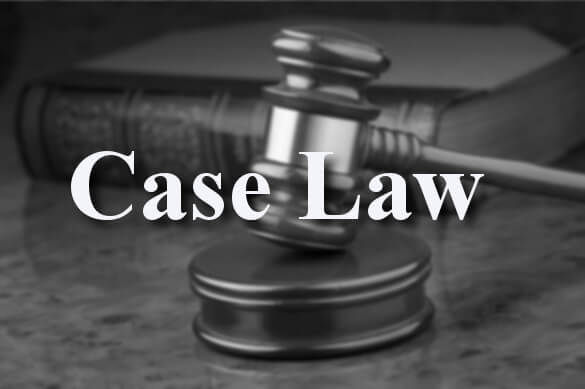This article is written by Bhavyika Jain, a first-year learner of Symbiosis Law School, NOIDA. This article would provide the readers with an insight into the landmark case of Carlill v. Carbolic Smoke Ball Co., which was decided amid an epidemic at that time.
Table of Contents
Introduction
Whenever society faces an epidemic, placebos and fake medicine cures emerge at a rapid scale. In the wake of established medicinal organizations’ inadequacy to provide ready therapies to a unique ailment, there will be elements in society who will try to earn quick money by offering magical cures to the naïve.
Being one of the most cited cases, it explains the concept of unilateral contracts. It highlights the difficulties of unilateral contracts and also helps in understanding that unilateral contracts are the most important part of the contract. Unilateral contracts tend to be most useful at some point in industrial use; promoting products like vaccinations as seen in the present Covid-19 scenario, that guarantee illness prevention, are primarily benefited with the use of unilateral contracts’ enforceability.
Background
The country witnessed one of the deadliest viruses back in 1918-19 called the ‘Spanish flu’ or ‘Influenza’. Influenza is a disease that is caused by a virus that gets transmitted from one person to another through airborne respiratory secretions. If a new strain of influenza virus occurs against the population with no immunity an outbreak can evolve. The cause of extreme mortality of this pandemic came to be known as Influenza type A subtype H1N1, which resulted in millions of deaths.
The pandemic occurred in three waves as is expected of the Covid-19 virus. The first wave of which came in early March, during World War 1 and spread quickly through western Europe and then to Poland. Pneumonia was taken as a symptom to know who has contracted the virus. At a later stage, the flu was spread in almost all parts of the world including countries like India, New Zealand, the United States of America, etc. It was the time when the case Carlill v. Carbolic Smoke Ball Co. came into the limelight.
Aspirin, quinine, arsenic, digitalis, strychnine, Epsom salts, castor oil, and iodine were used to treat the virus because there were no antiviral treatments and no antibiotics to treat the secondary bacterial infections. Traditional medicine treatments such as bloodletting, Ayurveda, and Kampo were also used. Although procedures for notifying public health authorities of the spread of infectious diseases existed in 1918, they did not frequently cover influenza, which resulted in a delayed response. However, actions were taken. On islands like Iceland, Australia, and American Samoa, maritime quarantines were declared, saving many lives. Closing schools, theatres, and houses of worship, as well as limiting public transit and prohibiting mass gatherings were among the social distancing tactics implemented. Face masks became popular in various countries, including Japan, despite disagreements about their effectiveness. As shown by the Anti-Mask League of San Francisco, there was also some opposition to their use. Vaccines were also produced, but they could only aid with secondary infections because they were based on bacteria rather than the virus itself. The extent to which various limitations were actually enforced, differed.
Facts of the case
Contentions of the plaintiff
It was claimed by the company that the advertisement was just a casual advertisement as they had no time to think and create it and there was no intention to enter into a legal obligation. They described it as a puffing advertisement as it was not made to any one person in particular, and there was no communication regarding the acceptance by the plaintiff and also no consideration was present in the proposed contract. Because of this, there is no need for them to pay any reward to the plaintiff.
Contentions of the defendant
The strongest argument as per the defendant was that when one generally gets an offer and is accepted by him, the same should be communicated as well but in this case, it was not communicated by the plaintiff. The court held that it was not a speculative offer but a definite one. It was mentioned in the advertisement that while consuming the smoke ball if anyone contracts influenza or even common flu, he is entitled to receive a reward. So, the advertisement caused the customers to see and act upon it. The money deposited in the bank showed the seriousness on behalf of the company about the offer, so it cannot be considered a puffing advertisement.
Issues raised in the case
The following are the four primary issues that were brought up:
- Did the plaintiff’s action upon the defendant’s advertisement constitute a binding contract between the parties?
- Is a formal notification of acceptance required by the contract in question?
- Is it necessary for Mrs Carlill to notify the Carbolic Smoke Ball Company that she has accepted the offer?
- Is there any evidence that Mrs Carlill gave anything in return for the company’s award of 1000 pounds?
The Court’s analysis of the case
Defendant, Carbolic Smoke Ball Co., argued that their advertisement lacked a binding impact which is necessary to form a valid contract. They argued that the phrases used in the advertisement did not constitute a legal commitment since the provisions of the advertisement were too imprecise to form a contract. They claimed that there was no time limit set and that there was no way to monitor how the smoke ball (product) was being used by customers. For example, a shady customer may not have used the product effectively and then accuses the corporation of failing to deposit the money according to the agreement. There was no contract since forming a legitimate contract necessitates transmission of acceptance intent. Mrs. Carlill didn’t openly or implicitly accept the offer in this situation, nor did she do so through any overt behaviour. As a result, it is evident that the advertisement was merely a marketing technique, and the corporation had no intention of entering into any kind of contract while making an offer to the general public, as per the court.
On the other hand, the Plaintiff stated that the promise was not vague and that the offer was constructed in such a way that it was evident that if the product was ineffective, the corporation would compensate a particular sum. To make things easier, the corporation had also deposited a considerable sum of money in the Alliance bank account. As a result, depositing the money demonstrates one side’s intention to truly sign an agreement. The plaintiffs further established that the money paid to purchase the carbolic smoke ball was a consideration. The advertisement was not a boast in the abstract. In fact, it encompassed the majority of the key characteristics of a contract, specifically a Unilateral Contract.
It was also stated that if the specific offer contains some conditions and fulfils the requirement, there is no need to accept that offer. Acceptance of the condition’s performance without notification is adequate. So, in this case, it was stated that fulfilling the terms of any offer constitutes acceptance and that communication of acceptance is unnecessary. Mrs. Carlill, the plaintiff got the reward of 1000 pounds.
Unilateral Contract
A unilateral contract is a contract where there is just a promise from one side and some performance is required from the other side. It’s a commitment made in return for specific activities. Advertisements and contracts are not the same things, but if an advertisement contains a clear promise to be legally bound, it can be considered a unilateral contract. In this case, the advertisement was not speculative and puffy. There was some thought given to the fact that the company would gain from the product’s sales and the fact that the company had deposited 1000 pounds in Alliance Bank as proof of payment honesty.
Communication of the acceptance of the offer, one of the essential elements of a valid offer, is defined under Section 4 of the Indian Contract Act, 1872. However, an exception is made under Section 8 of the Indian Contract Act for a unilateral contract, which states that when the offeror proposes the world, acceptance may be made through the performance of few acts. In this particular case, Mrs. Carlill consumed the ball as per the given directions, i.e., 3 times a day for 2 weeks. Such an action determined her acceptance of the offer for the promise. Thus, the advertisement was constituted as a unilateral contract.
Impact on English Contract Law
This decision had an impact on English contract law, particularly on the concept of a unilateral contract, as businesses and advertising agencies have henceforth been more cautious about what they divulge to the general public. A thoughtless marketing strategy can result in significant financial losses for a firm, as they may be drawn into an unnecessary legal battle.
There are now various possibilities for unilateral contracts. For example, if a person/pet goes missing and their family/owner puts up a poster of their image and name on it, offering a reward for any pertinent information or the safe return of the missing person/pet, it can be considered a unilateral contract. It is an offer to the entire globe. Once the person or pet has been located, it is assumed that the offer has been accepted. As a result, the offeror is now obligated to fulfil his part of the bargain, which is to compensate the person who found the missing entity.
Similarly, if the police offer incentives to the general public in the event of anyone offering information that would aid the police in a criminal investigation, it will be considered a unilateral contract. As a result, the award money is payable in the event of any person fulfilling the condition(s).
Harbhajan Lal v. Harcharan Lal (1925)
The case focused on a young lad aged 14 or 15 years, who had run away from his father’s house. In this case, the boy’s father was the defendant. He distributed a brochure in which he declared: “Anyone who finds my son and returns him to me will receive Rs.500 as a reward.” Harbhajan Lal, the plaintiff, discovered him at the Bareilly junction train station and took him to Dharamshala police station, where he informed the defendant that he had found his son, through telegram. However, when the incentive was given, the boy’s father claimed that he had not received any acceptance and hence was not entitled to any of the offer’s rewards.
According to the Allahabad High Court, this proposition was made for the benefit of the entire world. As a result, anyone can accept this proposal, and the significance of acceptance is the fulfilment of the proposal’s requirements. In this case, the plaintiff had fulfilled the proposal’s criteria by tracking down the youngster and sending the telegram. Thus, he is eligible for the incentive.
Conclusion
The case of Carlill v. Carbolic Smoke Ball Co. established the concept of ‘Unilateral Contract’, which is widely recognized by English and Wales courts. In terms of notification of acceptance of offer and consideration, it held that unilateral transactions are an exception. The case granted remedy not only in commercial issues but also under other Acts such as the Consumer Protection Act. The UK’s Consumer Protection from Unfair Trading Regulations, 2008 play a key role in making misleading marketing illegal.
The commercial uncertainty caused by such a void in unilateral contracts has an impact on the concept of contract privity. As a result, this case has become a landmark in contract law. Overall, the decision was well-crafted; yet, the decision’s underlying ramifications have been a perennial source of controversy in business circles.
References
- https://blog.ipleaders.in/case-analysis-carlill-v-carbolic-smoke-ball-co/
- https://www.legalserviceindia.com/legal/article-5860-carlill-v-s-carbolic-smoke-ball-company.html
- https://www.livelaw.in/know-the-law/carlill-v-carbolic-smoke-ball-co-landmark-decision-amid-epidemic-154518#:~:text=a%20novel%20disease.-,One%20such%20attempt%20by%20a%20company%20during%20the%20influenza%20epidemic,Smoke%20Ball%20Co(1892).&text=The%20company%20claimed%20that%20a,Ball%20would%20never%20contract%20influenza.
- https://www.britannica.com/event/influenza-pandemic-of-1918-1919
Students of Lawsikho courses regularly produce writing assignments and work on practical exercises as a part of their coursework and develop themselves in real-life practical skills.
LawSikho has created a telegram group for exchanging legal knowledge, referrals, and various opportunities. You can click on this link and join:
https://t.me/joinchat/J_0YrBa4IBSHdpuTfQO_sA
Follow us on Instagram and subscribe to our YouTube channel for more amazing legal content.
 Serato DJ Crack 2025Serato DJ PRO Crack
Serato DJ Crack 2025Serato DJ PRO Crack










 Allow notifications
Allow notifications


